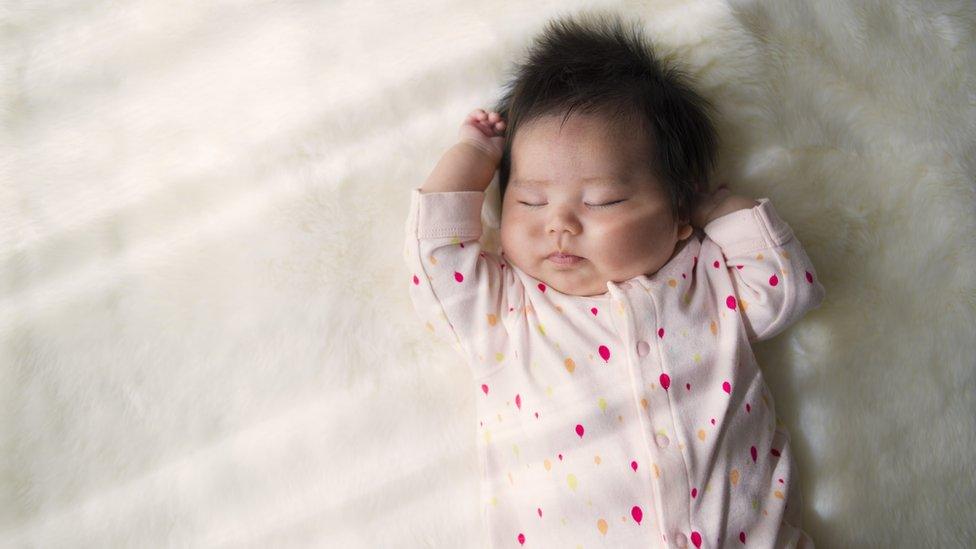Japan's single women a burden on the state, MP says
- Published

Last year just 941,000 children were born in Japan
An MP from Japan's governing party has been accused of sexism after he said young Japanese women should have more children or face being a burden on the state.
Speaking at an LDP party meeting, Kanji Kato said young women should have at least three children.
He has since retracted his remark, local media reported.
Last year the percentage of children in Japan fell to its lowest level since records began more than 100 years ago.
Financial and other incentives to encourage bigger families have had little impact.
Mr Kato said that when he gives wedding speeches he tells the bride and bridegroom to produce at least three children.
"We need three or more children from those people to make up for couples who cannot bear a child no matter what they do," he said. .
The current fertility rate in Japan is 1.42 births per woman.
The 72-year-old father-of-six also said that if he meets a woman who doesn't intend to marry, he tells her she will end up in a care home paid for by taxes from other people's children.
Several female MPs have complained the speech was sexist. "," one female MP at the meeting said, the Mainichi Shimbun reported.
Mr Kato reportedly initially said he had no intention of retracting his remark, saying that boosting the birth rate was the "most important issue facing our nation", the Asahi Shimbun said.
But he later issued a statement saying: "I apologise if my words gave the wrong impression. Although I never intended to discriminate against women, I retract the remarks I made because they could have been interpreted as such."
Read more about gender in Japan
It is not the first time an older male member of the LDP party has told Japanese women they have a public duty to have more children.
Last year, just 941,000 children were born in Japan, the lowest number since records began in 1899.
In April this year, there were 15.53 million children under 15, down 170,000 from the previous year, the internal affairs ministry says.
The Japanese government has also been trying to make it easier for mothers to continue working after giving birth.
Last year a female local politician brought her baby to a council session to show how difficult it was for women to juggle careers and raise children.